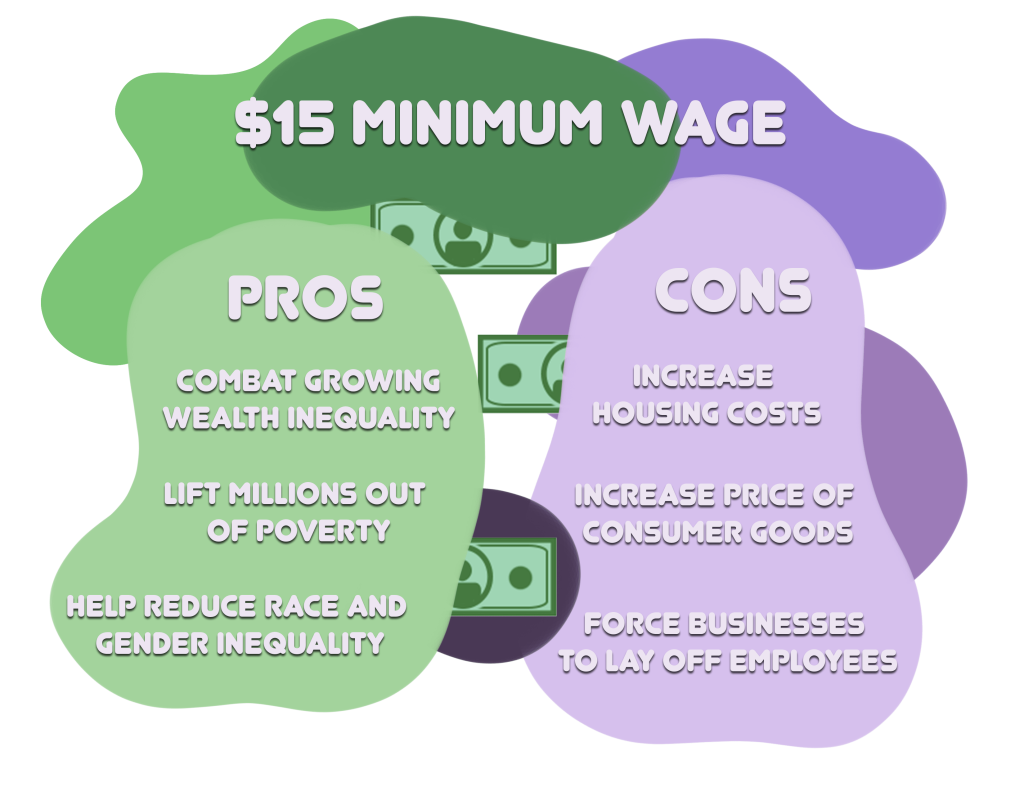President Biden has proposed raising the federal minimum wage to $15 per hour. While unlikely to pass due to partisan gridlock in Washington D.C., this change is long overdue, and should be put into place, as it will help millions of low-income workers, and be a step in the right direction to diminish the wage gap.
Despite the federal minimum wage being at an all-time high, once inflation is taken into account, workers are being paid less than they were 50 years ago, according to the Bureau of Labor Statistics. The Economic Policy Institute estimates that if the minimum wage had kept pace with the increase of productivity growth since the 1960s, the current minimum wage would be over $20 per hour. It is clear that the current US national minimum wage of $7.25, set in 2009, is woefully inadequate. It is simply not possible for workers to live on a wage of $7.25 per hour, or $15,000 annually for an employee working 40 hours a week.
A study conducted by the Congressional Budget Office reported that if the minimum wage was raised to $15 per hour, 1.3 million Americans would no longer live in poverty, and that overall, 27 million Americans would have higher paychecks. The rich have continued to get richer through tax cuts, while those in the lowest income brackets have seen their wages remain stagnant, and lessen in value due to inflation. Clearly, this increase would help combat growing wealth inequality.

It is quite likely that in many parts of the country, especially those with high costs of living such as the Bay Area, $15 per hour will not be enough. The National Employment Law Project (NELP) has reported that $15 per hour is already the lowest liveable wage in many parts of the country. An increase in the minimum wage would also give unions more power in negotiations to raise their wages to a fair value, as they will have a baseline of $15, instead of $7.25.
Perhaps just as important as legislation to raise the minimum wage is mandating and regularly scheduling increases based on inflation. This, instead of the current system of sporadic, random increases by Congress (the last increase was 12 years ago), would allow for there to consistently be fair, liveable wages for workers and would give consistency to businesses.
Congress should raise the minimum wage to $15 per hour, as well as create a system to regularly increase this value. This policy, contrary to what many Republican lawmakers would like their constituents to believe, is not a radical, fringe idea – a Pew Research Center study found that 67 percent of Americans support this increase. It is easy to see why it is such a popular idea, as if implemented, it would lift millions out of poverty, give better financial support to tens of millions more, shrink the country’s wage inequality, give more negotiating power to unions, and create consistency from year to year for both workers and employers.





